[Anchor]
Trump’s flip-flopping tariff policy has made a return.
He suddenly announced that certain electronics, including smartphones and laptops, would be excluded from reciprocal tariffs.
Was this a response to the fact that most iPhones are made in China? Washington's Kim Ji-sook has investigated the details.
[Report]
After the announcement of reciprocal tariffs, Apple's stock price dropped by more than 11%.
Concerns have arisen that the price of the iPhone, which is mostly produced in China, could increase by $350, or about 500,000 won.
[Jordan Richards/New Jersey Resident: "I would not pay $2,300 for an iPhone, for the newest iPhone for any reason. No."]
President Trump ultimately excluded 20 items, including smartphones and laptops, from the list of items subject to reciprocal tariffs.
Although the already imposed 20% tariff on iPhones produced in China will still apply, they will be exempt from the 125% reciprocal tariff.
While President Trump has consistently stated that there would be no exemptions from tariffs, this is interpreted as a retreat in response to market concerns.
In particular, among the items affected by this exemption on electronic products, a quarter are made in China, which is seen as the first easing measure in the tariff war with China.
However, uncertainty remains.
The U.S. has made it clear that it cannot rely on China for the production of key technologies such as semiconductors and smartphones.
It is also in a position to impose tariffs on semiconductors using its authority to take action if there is a threat to national security.
[Donald Trump/U.S. President: “I'll give you that answer on Monday. We’ll be very specific on Monday."]
After postponing the imposition of reciprocal tariffs by country, and then excluding smartphones from the tariff list just three days later, it seems that President Trump is increasingly feeling the pressure of the economic situation.
This is Kim Ji-sook from KBS News in Washington.
Trump’s flip-flopping tariff policy has made a return.
He suddenly announced that certain electronics, including smartphones and laptops, would be excluded from reciprocal tariffs.
Was this a response to the fact that most iPhones are made in China? Washington's Kim Ji-sook has investigated the details.
[Report]
After the announcement of reciprocal tariffs, Apple's stock price dropped by more than 11%.
Concerns have arisen that the price of the iPhone, which is mostly produced in China, could increase by $350, or about 500,000 won.
[Jordan Richards/New Jersey Resident: "I would not pay $2,300 for an iPhone, for the newest iPhone for any reason. No."]
President Trump ultimately excluded 20 items, including smartphones and laptops, from the list of items subject to reciprocal tariffs.
Although the already imposed 20% tariff on iPhones produced in China will still apply, they will be exempt from the 125% reciprocal tariff.
While President Trump has consistently stated that there would be no exemptions from tariffs, this is interpreted as a retreat in response to market concerns.
In particular, among the items affected by this exemption on electronic products, a quarter are made in China, which is seen as the first easing measure in the tariff war with China.
However, uncertainty remains.
The U.S. has made it clear that it cannot rely on China for the production of key technologies such as semiconductors and smartphones.
It is also in a position to impose tariffs on semiconductors using its authority to take action if there is a threat to national security.
[Donald Trump/U.S. President: “I'll give you that answer on Monday. We’ll be very specific on Monday."]
After postponing the imposition of reciprocal tariffs by country, and then excluding smartphones from the tariff list just three days later, it seems that President Trump is increasingly feeling the pressure of the economic situation.
This is Kim Ji-sook from KBS News in Washington.
■ 제보하기
▷ 카카오톡 : 'KBS제보' 검색, 채널 추가
▷ 전화 : 02-781-1234, 4444
▷ 이메일 : kbs1234@kbs.co.kr
▷ 유튜브, 네이버, 카카오에서도 KBS뉴스를 구독해주세요!
- Smartphones exempted from tariffs
-
- 입력 2025-04-14 00:43:06
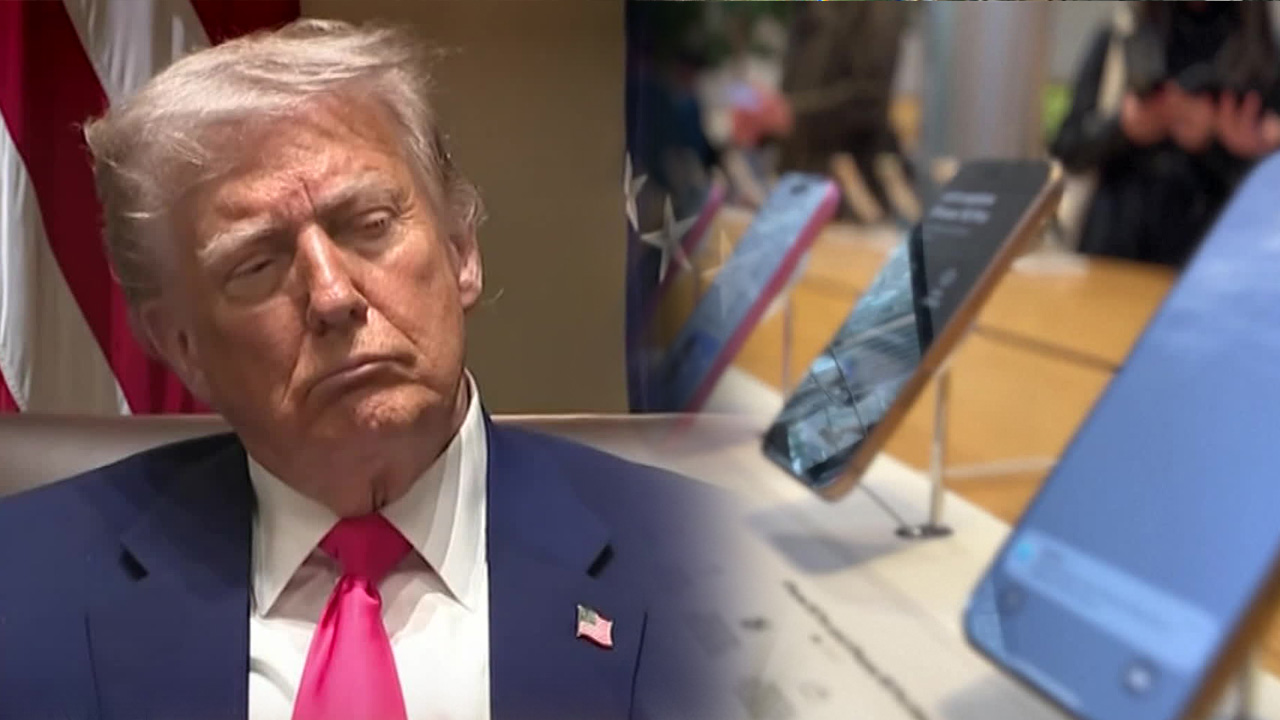
[Anchor]
Trump’s flip-flopping tariff policy has made a return.
He suddenly announced that certain electronics, including smartphones and laptops, would be excluded from reciprocal tariffs.
Was this a response to the fact that most iPhones are made in China? Washington's Kim Ji-sook has investigated the details.
[Report]
After the announcement of reciprocal tariffs, Apple's stock price dropped by more than 11%.
Concerns have arisen that the price of the iPhone, which is mostly produced in China, could increase by $350, or about 500,000 won.
[Jordan Richards/New Jersey Resident: "I would not pay $2,300 for an iPhone, for the newest iPhone for any reason. No."]
President Trump ultimately excluded 20 items, including smartphones and laptops, from the list of items subject to reciprocal tariffs.
Although the already imposed 20% tariff on iPhones produced in China will still apply, they will be exempt from the 125% reciprocal tariff.
While President Trump has consistently stated that there would be no exemptions from tariffs, this is interpreted as a retreat in response to market concerns.
In particular, among the items affected by this exemption on electronic products, a quarter are made in China, which is seen as the first easing measure in the tariff war with China.
However, uncertainty remains.
The U.S. has made it clear that it cannot rely on China for the production of key technologies such as semiconductors and smartphones.
It is also in a position to impose tariffs on semiconductors using its authority to take action if there is a threat to national security.
[Donald Trump/U.S. President: “I'll give you that answer on Monday. We’ll be very specific on Monday."]
After postponing the imposition of reciprocal tariffs by country, and then excluding smartphones from the tariff list just three days later, it seems that President Trump is increasingly feeling the pressure of the economic situation.
This is Kim Ji-sook from KBS News in Washington.
Trump’s flip-flopping tariff policy has made a return.
He suddenly announced that certain electronics, including smartphones and laptops, would be excluded from reciprocal tariffs.
Was this a response to the fact that most iPhones are made in China? Washington's Kim Ji-sook has investigated the details.
[Report]
After the announcement of reciprocal tariffs, Apple's stock price dropped by more than 11%.
Concerns have arisen that the price of the iPhone, which is mostly produced in China, could increase by $350, or about 500,000 won.
[Jordan Richards/New Jersey Resident: "I would not pay $2,300 for an iPhone, for the newest iPhone for any reason. No."]
President Trump ultimately excluded 20 items, including smartphones and laptops, from the list of items subject to reciprocal tariffs.
Although the already imposed 20% tariff on iPhones produced in China will still apply, they will be exempt from the 125% reciprocal tariff.
While President Trump has consistently stated that there would be no exemptions from tariffs, this is interpreted as a retreat in response to market concerns.
In particular, among the items affected by this exemption on electronic products, a quarter are made in China, which is seen as the first easing measure in the tariff war with China.
However, uncertainty remains.
The U.S. has made it clear that it cannot rely on China for the production of key technologies such as semiconductors and smartphones.
It is also in a position to impose tariffs on semiconductors using its authority to take action if there is a threat to national security.
[Donald Trump/U.S. President: “I'll give you that answer on Monday. We’ll be very specific on Monday."]
After postponing the imposition of reciprocal tariffs by country, and then excluding smartphones from the tariff list just three days later, it seems that President Trump is increasingly feeling the pressure of the economic situation.
This is Kim Ji-sook from KBS News in Washington.
-
-

김지숙 기자 jskim84@kbs.co.kr
김지숙 기자의 기사 모음
-
이 기사가 좋으셨다면
-
좋아요
0
-
응원해요
0
-
후속 원해요
0










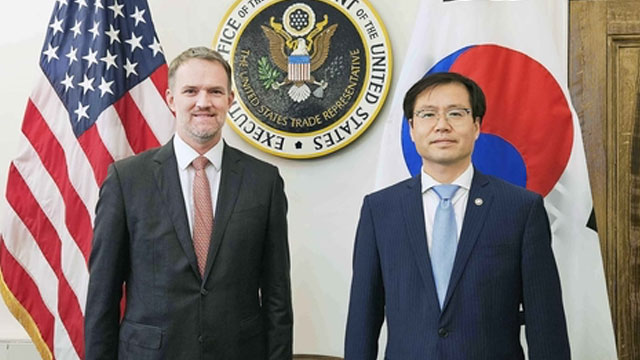
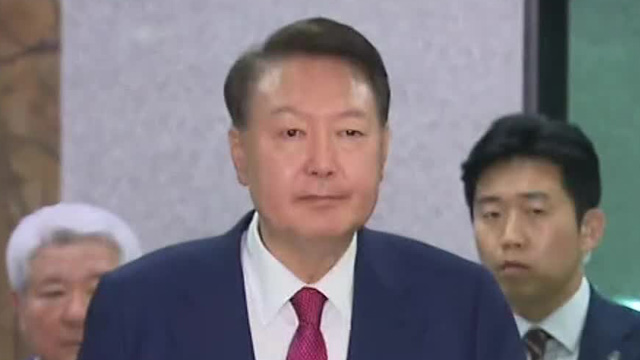
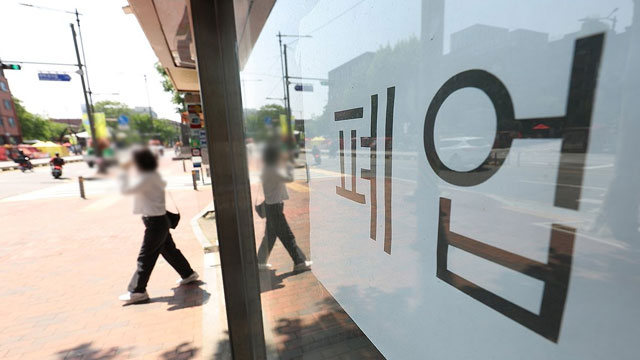
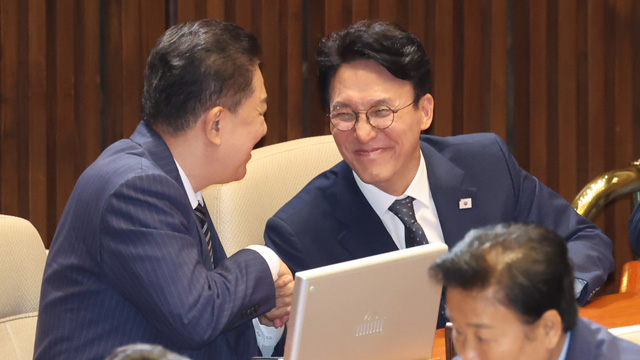

이 기사에 대한 의견을 남겨주세요.